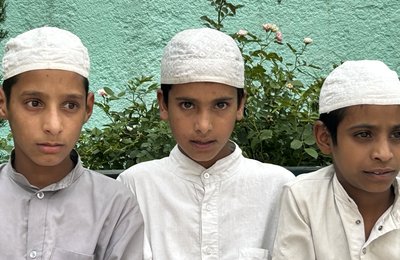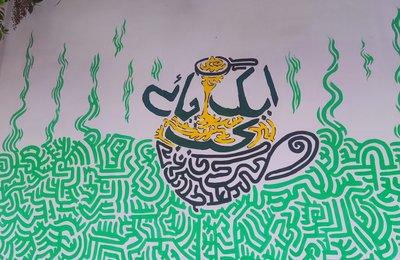The Centre d’Encadrement et de Développement des Anciens Combattants (The Centre for Training and Development of Ex-Combatants, CEDAC) is an organisation with ten staff dedicated to the peaceful reintegration of ex-combatants through skills and peacebuilding training. To date, CEDAC has assisted with the socioeconomic reintegration of 25,000 ex-combatants across the country.
CEDAC is a non-partisan organisation that aims to support former soldiers reintegrate socioeconomically through training, peacebuilding and development projects, human rights promotion and grassroots community initiatives.
Since CEDAC was created, it has taken part in initiatives which include:
- Campaigning for the voluntary handover of firearms;
- Monitoring ex-combatants’ own initiatives;
- Providing training in conflict prevention and management;
- Peacebuilding activities for female ex-combatants;
- Protecting the environment;
- Lobbying and advocacy, and
- Other community development projects.
CEDAC is very active on the ground, with members across the whole of Burundi. They hope to establish offices in other post-conflict African countries, and already have representatives in other countries around the world. It has previously received funding from bodies such as the UNDP and UNIFEM.
 Members of CEDAC perform traditional drumming to promote communication and Burundi's shared traditions. Photo credit: The Advocacy Project. Uploaded under a Creative Commons License.
Members of CEDAC perform traditional drumming to promote communication and Burundi's shared traditions. Photo credit: The Advocacy Project. Uploaded under a Creative Commons License.
Supporting peacebuilding among female ex-combatants
CEDAC runs initiatives to redress the lack of projects aimed at female ex-combatants. With research into their numbers, and the establishment of a system for their representation in civil society, women formerly involved in the war are beginning to gain recognition. So far, several hundred participants have taken part in the programme.
Women have been deeply affected by Burundi’s 12-year civil war in various ways. Some chose or were forced to fight; many were also used as porters or cooks, or for sexual relations.
Post-war, Burundi’s Disarmament, Demobilisation and Reintegration (DDR) programme offers grants to ex-combatants, but defines these as people who hand in a weapon used in war. This excludes many of the women associated with rebel groups, who nonetheless encounter the same problems reintegrating and finding livelihoods. In fact, many face additional challenges: they may be accompanied by young children, be poorly educated or illiterate, or may never have had stable jobs. They may also be rejected by their communities because of their sexual involvement with rebel groups.
In response to this crisis, CEDAC launched this second-tier, four-month initiative in October 2007. CEDAC provided training seminars, community development initiatives, and social events in order to create a structure to reintegrate women who had served in the war. We define these as female ex-combatants.
Firstly, CEDAC identified potential participants throughout Burundi, using the media, especially local radio, to help raise awareness among the public about the issue.
Next, CEDAC organised regional meetings with representatives of female ex-combatants, setting up committees at all levels. Training was provided for representatives on peaceful coexistence, and on setting up and managing associations. Participants visited survivors, victims, and widows of soldiers to initiate reconciliation and the forging of stronger community relationships. Participants were also informed about legal issues, covering the Fundamental Law, the Persons and Family Law, UN Resolution 1325, and the Convention on the Elimination of all forms of Discrimination Against Women (CEDAW).
Finally, CEDAC organised a National Forum, gathering together all the representatives. The Forum elected a national board, and adopted an annual Action Plan. The meeting also provided a valuable opportunity for delegates to share their own experiences of the conflict.
The initial phase of identifying potential beneficiaries revealed the extent of the crisis for the first time – CEDAC now estimate that there are around 8,000 female ex-combatants in Burundi.
The project also allowed CEDAC to establish structures for the representation of female ex-combatants through democratically-elected bodies at communal, provincial and national levels. Six-hundred and fifty-five women have taken part in our training workshops, and many have now started up small associations to improve their livelihoods.
The new Forum adopted an Action Plan for 2008, calling for
- The involvement of female ex-combatants in peacebuilding activities across Burundi;
- Socioeconomic and capacity building programmes to support their reintegration; and
- Media and ICT campaigns to raise awareness and to advocate for their rights.
These activities are ongoing.
CEDAC claim that female combatants are suffering more than their male colleagues, and face additional forms of marginalisation. The reintegration programme is urgently needed to foster their involvement in, and contribution to, Burundi’s peace and development process.
CEDAC has also launched an 18-month project called 'Dushigikirane' ('let’s support each other') in four communes (Kabezi, Kanyosha, Isale and Mutimbuzi) of Bujumbura province. The project aims at organising training on gender-based violence and provides local groups of female ex-combatants seeds of rice and micro-credits small grants.
Follow CEDAC on facebook.




